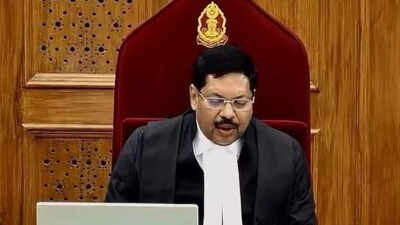
Ramana said that during the phase following the state government’s announcement of a three-capital plan for Andhra Pradesh, his daughters were accused of misusing their positions to acquire land in Amaravati before the capital city decision was officially public. He described the filing of police cases as being intended “only to coerce me” and asserted that other judges who upheld constitutional norms had been similarly targeted.
The former chief justice’s disclosures draw attention to a deeper tension between the judiciary and the executive in a state where political change, land disputes, and capital region controversies have been prominent. He emphasised that the cause of Amaravati farmers—who surrendered land under the earlier regime and protested the shift of the capital—held special personal resonance, noting that his roots in the region made the issue “very close to my heart”. He said that those who supported the farmers’ struggle faced institutional retaliation and that the rule of law only survives when faith in public institutions remains intact.
The episode revolves around the controversial “three-capitals” proposal adopted by the government under Chief Minister Y. S. Jagan Mohan Reddy, which designated Visakhapatnam the administrative capital, Amaravati the legislative capital and Kurnool the judicial capital. That decision sparked widespread protest by farmers and land-owners in the Amaravati region, who had originally given up land for the capital city development under the Telugudesam Party-led regime and objected to the de facto abandonment of Amaravati. Ramana linked his family’s targeting to the period when sympathisers of the farmers’ movement, including some in the legal system, faced transfers and legal harassment.
While Ramana did not name individuals or official departments responsible for the actions, the implications are significant given the separation of powers doctrine and the necessary independence of the judiciary. The letter written by then Chief Minister Jagan to then-CJI Sharad Arvind Bobde in 2020 had alleged that Ramana was favouring the opposition Telugu Desam Party and manipulating the roster of the Andhra Pradesh High Court—assertions that the Supreme Court dismissed after an in-house procedure. The land acquisition allegations against his daughters were likewise stayed by the Andhra Pradesh High Court in 2020, which also imposed a media gag on the FIR’s contents.
